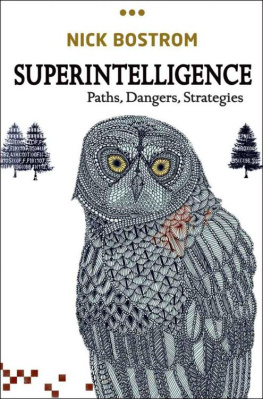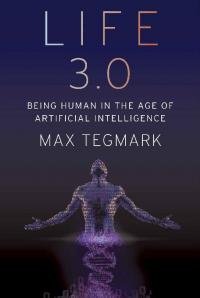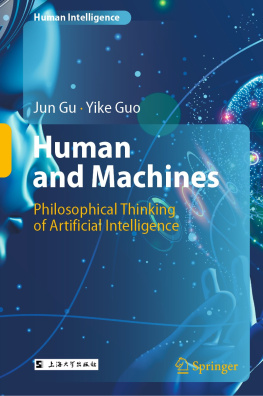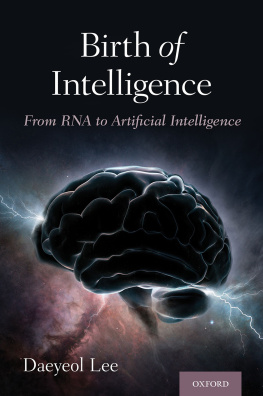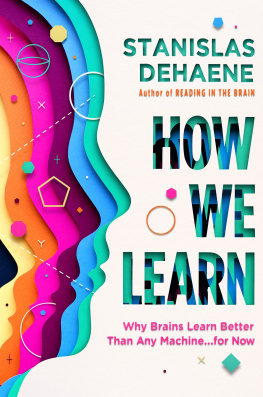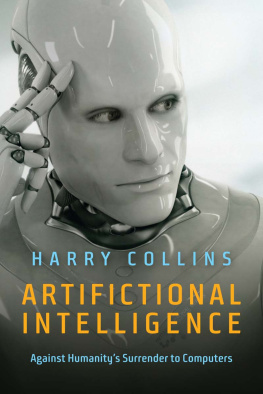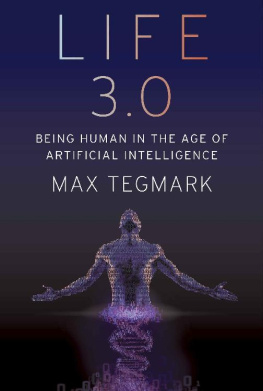Superintelligence
SUPERINTELLIGENCE
Paths, Dangers, Strategies
NICK BOSTROM
Director, Future of Humanity Institute
Professor, Faculty of Philosophy & Oxford Martin School
University of Oxford


Great Clarendon Street, Oxford, OX2 6DP,
United Kingdom
Oxford University Press is a department of the University of Oxford.
It furthers the Universitys objective of excellence in research, scholarship,
and education by publishing worldwide. Oxford is a registered trade mark of
Oxford University Press in the UK and in certain other countries
Nick Bostrom 2014
The moral rights of the author have been asserted
First Edition published in 2014
Impression: 1
All rights reserved. No part of this publication may be reproduced, stored in a retrieval system, or transmitted, in any form or by any means, without the prior permission in writing of Oxford University Press, or as expressly permitted by law, by licence or under terms agreed with the appropriate reprographics rights organization. Enquiries concerning reproduction outside the scope of the above should be sent to the Rights Department, Oxford University Press, at the address above
You must not circulate this work in any other form
and you must impose this same condition on any acquirer
British Library Cataloguing in Publication Data
Data available
Library of Congress Control Number: 2013955152
ISBN 9780199678112
Printed in Italy by
L.E.G.O. S.p.A.Lavis TN
Links to third party websites are provided by Oxford in good faith and for information only. Oxford disclaims any responsibility for the materials contained in any third party website referenced in this work.
The Unfinished Fable of the Sparrows
It was the nest-building season, but after days of long hard work, the sparrows sat in the evening glow, relaxing and chirping away.
We are all so small and weak. Imagine how easy life would be if we had an owl who could help us build our nests!
Yes! said another. And we could use it to look after our elderly and our young.
It could give us advice and keep an eye out for the neighborhood cat, added a third.
Then Pastus, the elder-bird, spoke: Let us send out scouts in all directions and try to find an abandoned owlet somewhere, or maybe an egg. A crow chick might also do, or a baby weasel. This could be the best thing that ever happened to us, at least since the opening of the Pavilion of Unlimited Grain in yonder backyard.
The flock was exhilarated, and sparrows everywhere started chirping at the top of their lungs.
Only Scronkfinkle, a one-eyed sparrow with a fretful temperament, was unconvinced of the wisdom of the endeavor. Quoth he: This will surely be our undoing. Should we not give some thought to the art of owl-domestication and owl-taming first, before we bring such a creature into our midst?
Replied Pastus: Taming an owl sounds like an exceedingly difficult thing to do. It will be difficult enough to find an owl egg. So let us start there. After we have succeeded in raising an owl, then we can think about taking on this other challenge.
There is a flaw in that plan! squeaked Scronkfinkle; but his protests were in vain as the flock had already lifted off to start implementing the directives set out by Pastus.
Just two or three sparrows remained behind. Together they began to try to work out how owls might be tamed or domesticated. They soon realized that Pastus had been right: this was an exceedingly difficult challenge, especially in the absence of an actual owl to practice on. Nevertheless they pressed on as best they could, constantly fearing that the flock might return with an owl egg before a solution to the control problem had been found.
It is not known how the story ends, but the author dedicates this book to Scronkfinkle and his followers.
PREFACE
Inside your cranium is the thing that does the reading. This thing, the human brain, has some capabilities that the brains of other animals lack. It is to these distinctive capabilities that we owe our dominant position on the planet. Other animals have stronger muscles and sharper claws, but we have cleverer brains. Our modest advantage in general intelligence has led us to develop language, technology, and complex social organization. The advantage has compounded over time, as each generation has built on the achievements of its predecessors.
If some day we build machine brains that surpass human brains in general intelligence, then this new superintelligence could become very powerful. And, as the fate of the gorillas now depends more on us humans than on the gorillas themselves, so the fate of our species would depend on the actions of the machine superintelligence.
We do have one advantage: we get to build the stuff. In principle, we could build a kind of superintelligence that would protect human values. We would certainly have strong reason to do so. In practice, the control problemthe problem of how to control what the superintelligence would dolooks quite difficult. It also looks like we will only get one chance. Once unfriendly superintelligence exists, it would prevent us from replacing it or changing its preferences. Our fate would be sealed.
In this book, I try to understand the challenge presented by the prospect of superintelligence, and how we might best respond. This is quite possibly the most important and most daunting challenge humanity has ever faced. Andwhether we succeed or failit is probably the last challenge we will ever face.
It is no part of the argument in this book that we are on the threshold of a big breakthrough in artificial intelligence, or that we can predict with any precision when such a development might occur. It seems somewhat likely that it will happen sometime in this century, but we dont know for sure. The first couple of chapters do discuss possible pathways and say something about the question of timing. The bulk of the book, however, is about what happens after. We study the kinetics of an intelligence explosion, the forms and powers of superintelligence, and the strategic choices available to a superintelligent agent that attains a decisive advantage. We then shift our focus to the control problem and ask what we could do to shape the initial conditions so as to achieve a survivable and beneficial outcome. Toward the end of the book, we zoom out and contemplate the larger picture that emerges from our investigations. Some suggestions are offered on what ought to be done now to increase our chances of avoiding an existential catastrophe later.
This has not been an easy book to write. I hope the path that has been cleared will enable other investigators to reach the new frontier more swiftly and conveniently, so that they can arrive there fresh and ready to join the work to further expand the reach of our comprehension. (And if the way that has been made is a little bumpy and bendy, I hope that reviewers, in judging the result, will not underestimate the hostility of the terrain ex ante!)
This has not been an easy book to write: I have tried to make it an easy book to read, but I dont think I have quite succeeded. When writing, I had in mind as the target audience an earlier time-slice of myself, and I tried to produce a kind of book that I would have enjoyed reading. This could prove a narrow demographic. Nevertheless, I think that the content should be accessible to many people, if they put some thought into it and resist the temptation to instantaneously misunderstand each new idea by assimilating it with the most similar-sounding clich available in their cultural larders. Non-technical readers should not be discouraged by the occasional bit of mathematics or specialized vocabulary, for it is always possible to glean the main point from the surrounding explanations. (Conversely, for those readers who want more of the nitty-gritty, there is quite a lot to be found among the endnotes.)
Next page
